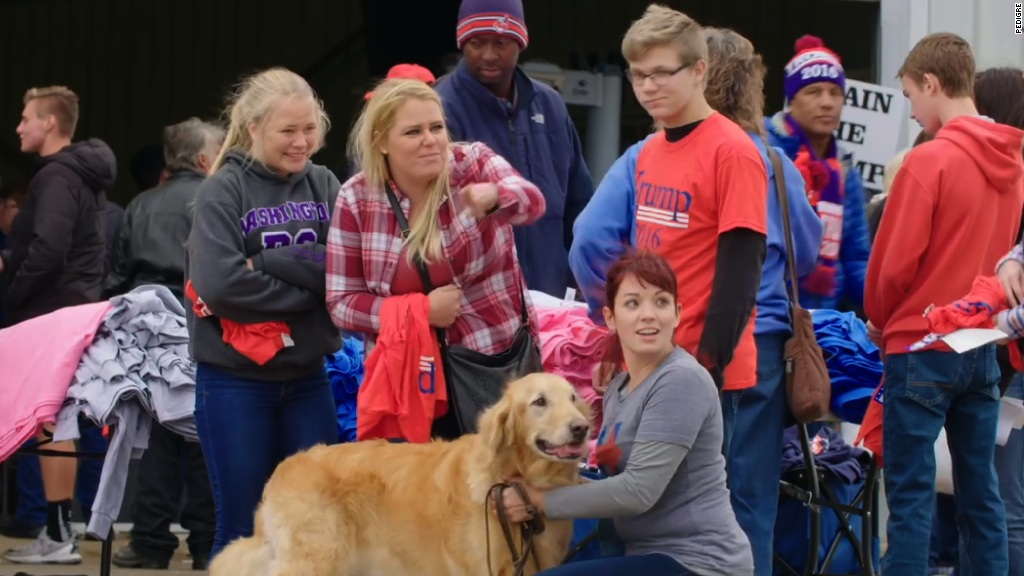
There's a glaring hole in polling data: It doesn't capture the subconscious minds of voters.
That's according to Spencer Gerrol, the founder of Spark Experience. The startup examined the effects of political candidates on the human brain and nervous system throughout the presidential campaign.
Unlike a good portion of the nation, its neuroscience team wasn't completely surprised when Donald Trump was named the President-elect earlier this week.
A week before the election, Spark went to two swing states -- Pennsylvania and Florida -- to take the pulse of nearly 40 undecided voters.
Participants were shown ads while hooked up to Spark's BrainWave device. The system tracks and measures brain activity, heart rate, eye movement and changes in facial activity, as well as skin and sweat response.
Spark combined this data into an algorithm to determine a viewer's attention span and emotional reaction to the candidates.
Related: Peter Thiel joins Trump's transition team
After listening to a series of ads -- which consisted of mostly radio spots related to the candidates -- the participants were interviewed. Spark later compared what the participants said to how their brain responded.
As it turns out, many voters weren't as undecided as they professed, according to Gerrol.
Most fell into one of three categories: People who lied to the interviewer, those who were lying to themselves -- i.e. they thought they were undecided when they emotionally were not -- and participants who weren't passionate enough to vote.
According to Spark's study, one undecided voter declared both candidates were "so flawed...I just can't decide what to do." But the man's brain activity revealed he resonated most to statements about a broken system, the need for change and regular middle class Americans being left behind.
Once Spark discussed its finding with the man, he said he'd probably vote for Trump.
Related: Did the internet elect the president?
"We're influenced by emotions much more than we realize," Gerrol told CNNMoney.
Although people weren't necessarily lying, they were unaware of their own emotional state and how it may impact their decisions.
Throughout the presidential campaign period, Spark performed three rounds of studies conducted among more than 100 people.
While the study began in the early stages of the election, the final round was commissioned by Katz Media, which wanted to better understand the effectiveness of radio ads.
Gerrol has been conducting experiments with Spark's BrainWave for the past two years. Previously, he worked with Angry Birds maker Rovio to test advertising and helped retailer Fossil optimize its website for online shoppers by analyzing eye movements.
But he wanted to bring the technology to politics to get a better look into the minds of voters.
"I think polling is important and valuable," said Gerrol. "But there's a hole in taking what people say at face value."

